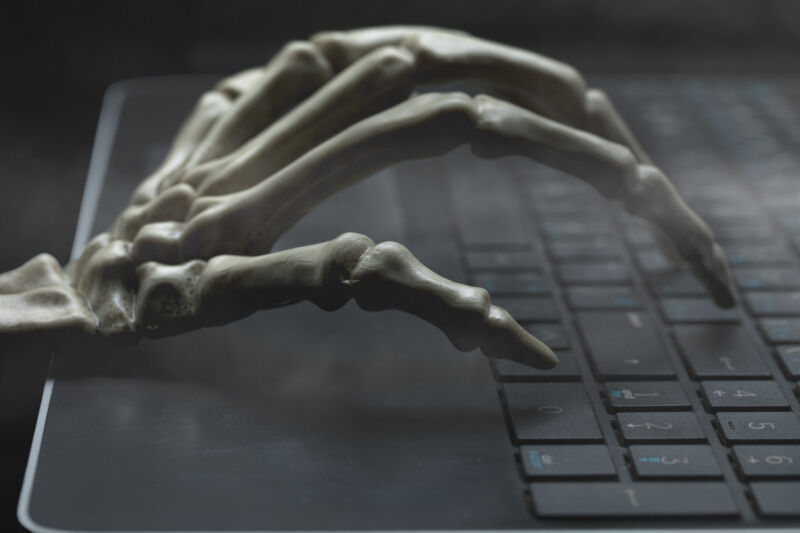
Good pictures
A few weeks ago, we focused on the legal issues with accessing your digital Steam game library after your death. While Valve did not respond to a request for comment on the matter, PC gaming platform GOG told Ars that it is willing to help users transfer their accounts if they die.
Until they bring a court order, that is.
“In general, you cannot transfer your GOG account and GOG content,” GOG spokeswoman Zuzanna Rybacka tells Ars. “However, if you are able to obtain a copy of a court order that specifically entitles someone to your GOG Personal Account, digital content attached to it, taking into account the EULAs of the specific games contained therein, and specifically indicating your GOG username or at least the email address used to create such account, we may do so. Let’s do everything we can.”
A legal minefield
GOG says that without a binding court order, it will be difficult for them to switch an account at a user’s request (or in accordance with that user’s last wish). It’s fundamental that GOG accounts and content are subject to limited, unique, non-transferable licenses — “that’s the standard for digital services and goods,” Rybacka points out. In addition, “each game distributed on GOG is subject to a separate EULA (End User License Agreement), which can individually describe what rights are granted to the user of a game,” Rybacka said.
Beyond that, there is even establishing beyond doubt that a particular account belongs to a particular person. “As you know, GOG does not collect enough information to truly identify a particular person (such as first and last name) or their family or marital status,” Rybacka said. “For this reason, we are unable to establish that someone is related to a particular user or that a particular user has died.”
Even an affidavit from the executor of a user’s estate clarifying their wishes may not be enough to fully cover the site legally, GOG said. “As this is a very complex and delicate matter, we need to provide a legal basis for the estate administrator’s actions in relation to the GOG account, and the GOG account and the content attached to it are part of such estate,” GOG said.
The GOG told Ars it wanted to tread carefully in these situations because it was “a particularly delicate matter with no existing legal guidance.” Principles around Digital Ownership Transfer”[have] is not fully regulated by any specific laws and, as such, we are bound by the common law in this regard.”
GOG said it was aware of “some existing court rulings that allowed certain individuals to inherit an online account.” It recommends a court order “as a possible option in line with our sports safety mission and our willingness to deal with such situations,” the site said.
“We are ready to handle such a situation and protect your GOG library – but at this time we can only do so with the help of the justice system.”

GOG
While convincing a judge that your deceased relative wants you to access their GOG library, the court order at least provides a possible way to get such an account out of the legal bind of hiding your digital stuff. After death. Glad to hear that GOG is keen to help out in this type of situation, even if some strong legal protection is currently required.
Although separate from handing over an account, GOG’s long-standing policy of offering downloadable games without any DRM protection comes hand in hand. GOG Games In a relatively simple matter. “GOG game builds are DRM-free and offline installers are included with every purchase,” Rybaga said. “That way, if someone wants to save their offline games to, for example, an external hard drive, they’re protected regardless of account ownership.”